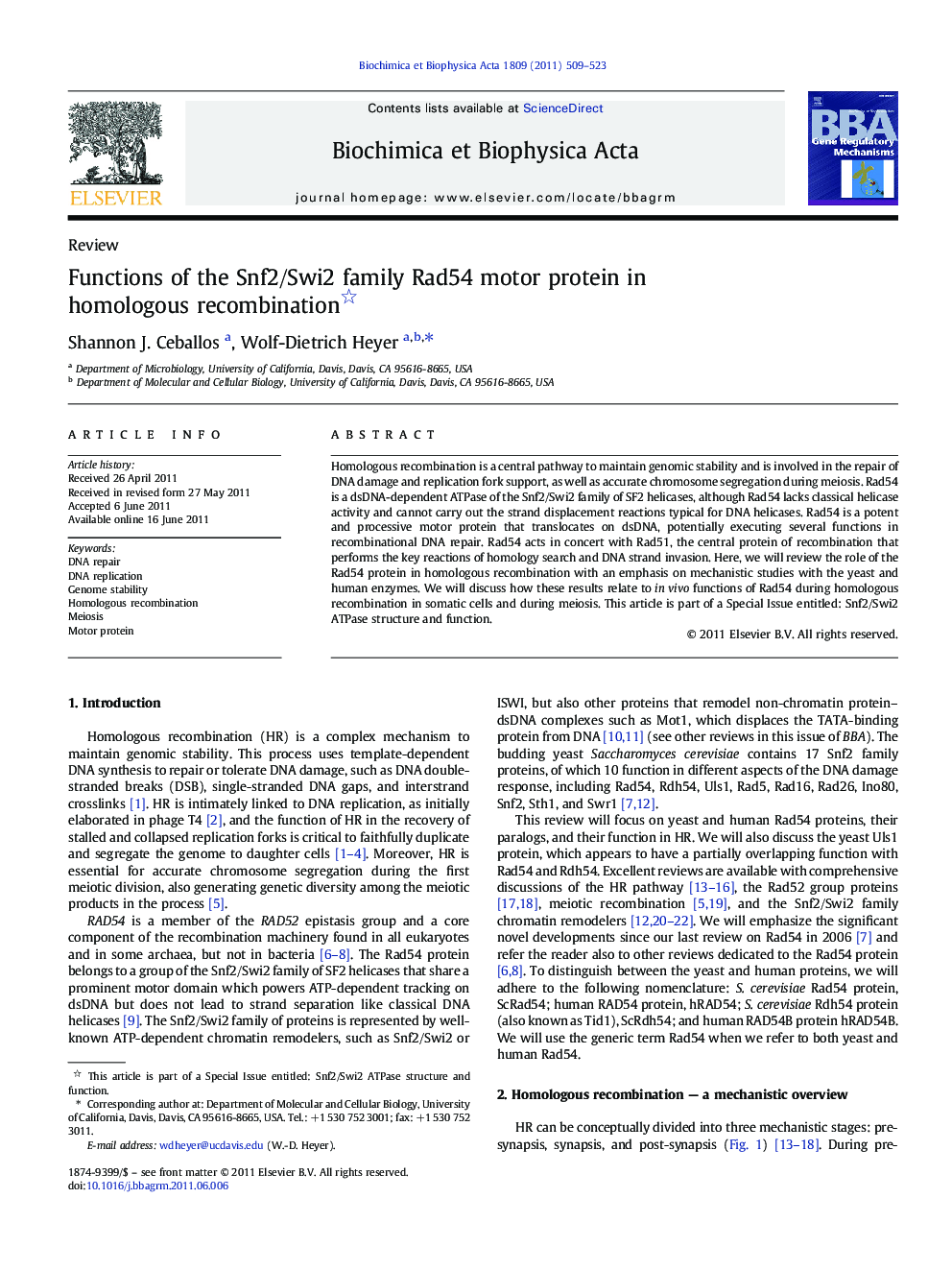| Article ID | Journal | Published Year | Pages | File Type |
|---|---|---|---|---|
| 1946652 | Biochimica et Biophysica Acta (BBA) - Gene Regulatory Mechanisms | 2011 | 15 Pages |
Homologous recombination is a central pathway to maintain genomic stability and is involved in the repair of DNA damage and replication fork support, as well as accurate chromosome segregation during meiosis. Rad54 is a dsDNA-dependent ATPase of the Snf2/Swi2 family of SF2 helicases, although Rad54 lacks classical helicase activity and cannot carry out the strand displacement reactions typical for DNA helicases. Rad54 is a potent and processive motor protein that translocates on dsDNA, potentially executing several functions in recombinational DNA repair. Rad54 acts in concert with Rad51, the central protein of recombination that performs the key reactions of homology search and DNA strand invasion. Here, we will review the role of the Rad54 protein in homologous recombination with an emphasis on mechanistic studies with the yeast and human enzymes. We will discuss how these results relate to in vivo functions of Rad54 during homologous recombination in somatic cells and during meiosis. This article is part of a Special Issue entitled: Snf2/Swi2 ATPase structure and function.
► This review will focus on Rad54, its paralogs, and their function in recombination. ► Homologous recombination is a key pathway to maintain genomic integrity. ► Rad54 is a core component of the recombination machinery in all eukaryotes. ► The review focuses on mechanistic studies with the yeast and human enzymes. ► We relate the biochemical findings to genetic and cytological studies of Rad54.
